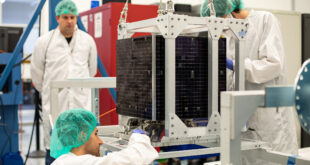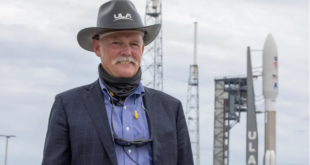
Paris/ Washington, 4 November 2021. – The U.S. Federal Communications Commission (FCC) has authorized Boeing to construct, deploy, and operate a broadband satellite constellation.
The FCC’s Order approves Boeing’s application for non-geostationary orbit fixed-satellite service system using frequencies in portions of the V-band (the 37.5-40, 40-42, 47.2-50.2 and 50.4-51.4 GHz bands), and to operate inter-satellite links (ISLs) using frequencies in portions of the V-band (65-71 GHz band), the FCC said.
Boeing´s V-band constellation will consist of 132 low Earth orbit (LEO) satellites in a circular orbit at an altitude of 1056 kilometers and 15 highly inclined NGSO satellites at an altitude between approximately 27,355 and 44,221 kilometers.
The constellation would initially provide broadband internet and communications services to residential consumers, government and business users in the United States, Puerto Rico and the U.S. Virgin Islands, the FCC said. Once full deployment of the 147-satellite system is complete, the constellation would provide high speed data access to consumers on a global basis
Boeing now has six years to launch half of the constellation, the FCC said.
It “must launch 50 percent of the maximum number of proposed space stations, place them in the assigned orbits, and operate them in accordance with this grant no later than November 2, 2027, and must launch the remaining space stations necessary to complete its authorized service constellation, place them in their assigned orbits, and operate them in accordance with the authorization no later than November 2, 2030”, the FCC´s order said.
 SpaceWatch.Global An independent perspective on space
SpaceWatch.Global An independent perspective on space




